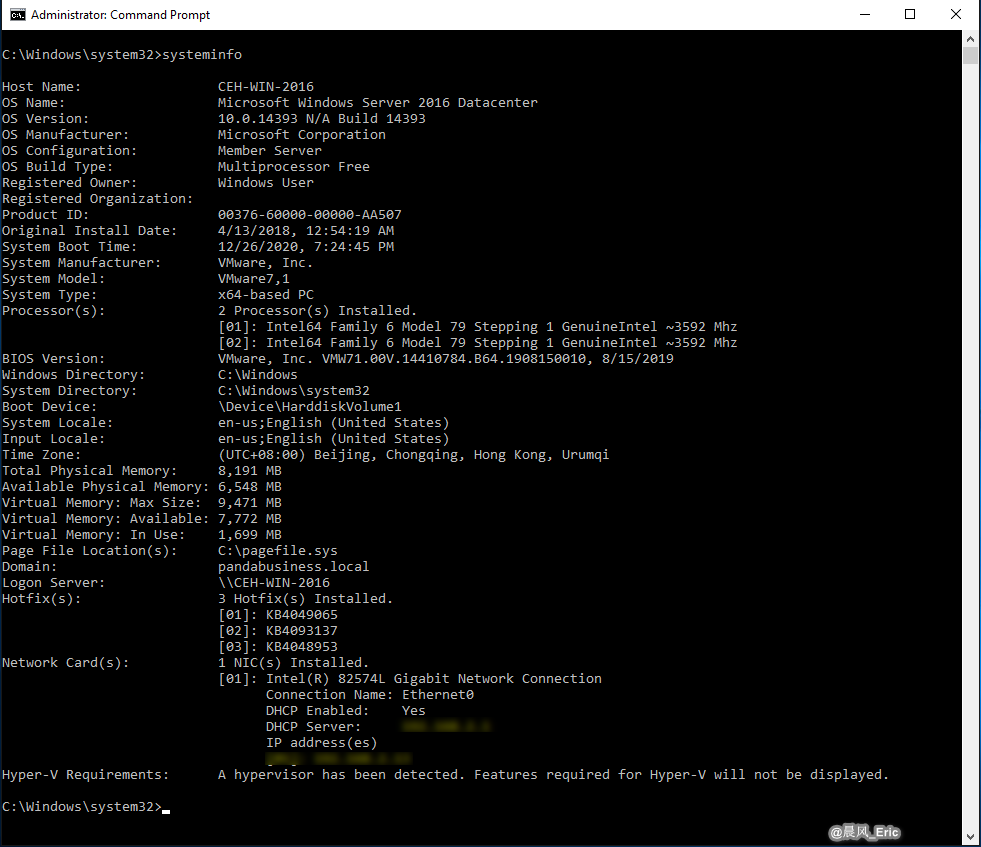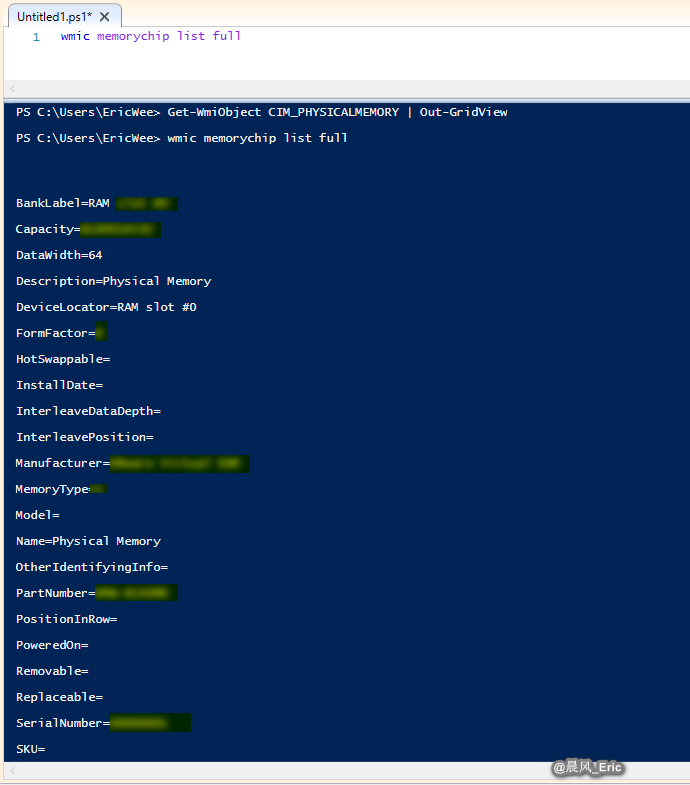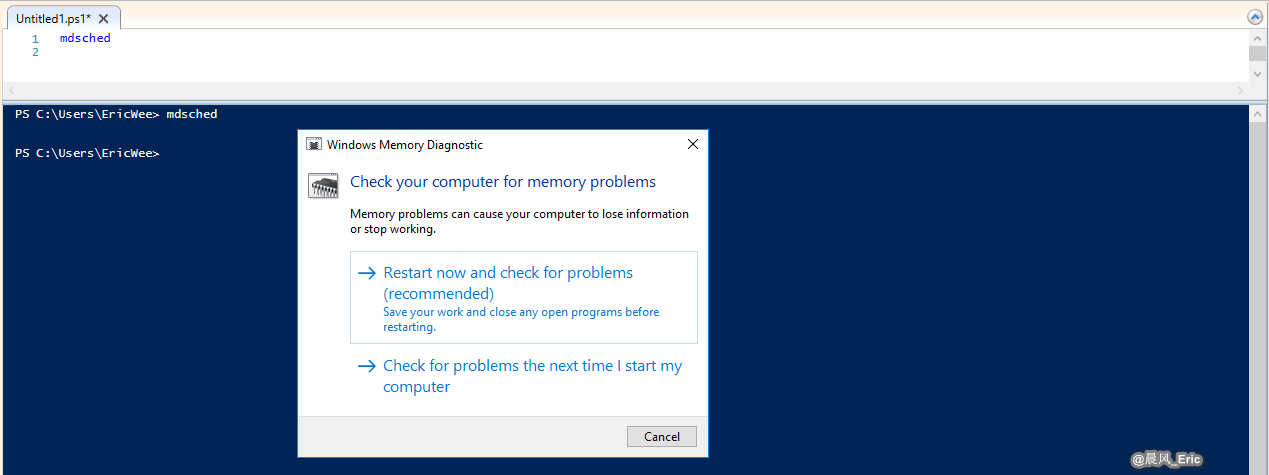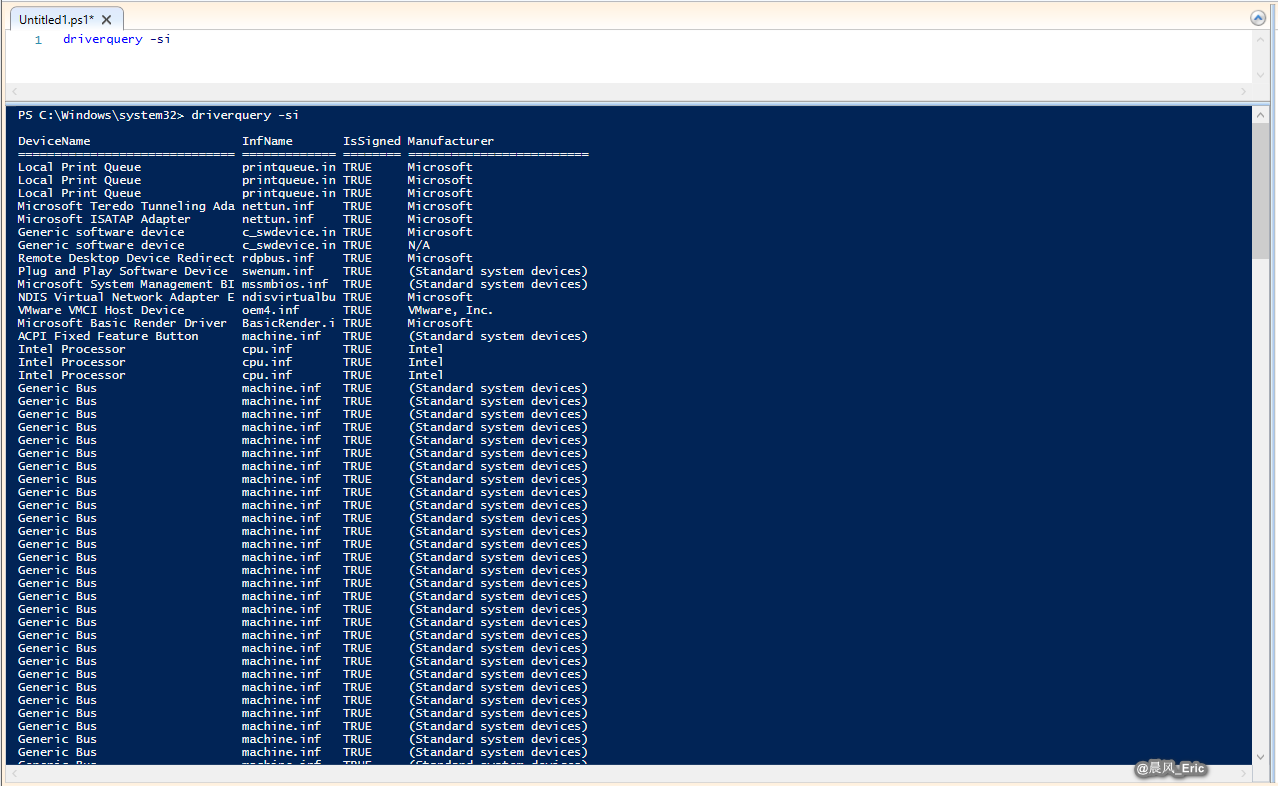Windows Command Line - Memory Management
How to use Systeminfo
systeminfo

Windows Management Interface(WMI)
wmic memorychip

Get-WmiObject CIM_PHYSICALMEMORY | Out-GridView

wmic memorychip list full

Memory Diagnostic
mdsched

Defragmentation
defrag C:
defrag C:/U
PS C:UsersEricWee> defrag
Microsoft Drive Optimizer
Copyright (c) 2013 Microsoft Corp.
Description:
Optimizes and defragments files on local volumes to
improve system performance.
Syntax:
defrag <volumes> | /C | /E <volumes> [<task(s)>] [/H] [/M [n] | [/U] [/V]] [/I n]
Where <task(s)> is omitted (traditional defrag), or as follows:
/A | [/D] [/K] [/L] | /O | /X
Or, to track an operation already in progress on a volume:
defrag <volume> /T
Parameters:
Value Description
/A Perform analysis on the specified volumes.
/C Perform the operation on all volumes.
/D Perform traditional defrag (this is the default).
/E Perform the operation on all volumes except those specified.
/G Optimize the storage tiers on the specified volumes.
/H Run the operation at normal priority (default is low).
/I n Tier optimization would run for at most n seconds on each volume.
/K Perform slab consolidation on the specified volumes.
/L Perform retrim on the specified volumes.
/M [n] Run the operation on each volume in parallel in the background.
At most n threads optimize the storage tiers in parallel.
/O Perform the proper optimization for each media type.
/T Track an operation already in progress on the specified volume.
/U Print the progress of the operation on the screen.
/V Print verbose output containing the fragmentation statistics.
/X Perform free space consolidation on the specified volumes.
Examples:
defrag C: /U /V
defrag C: D: /M
defrag C:mountpoint /A /U
defrag /C /H /V

Driverquery
driverquery -si
